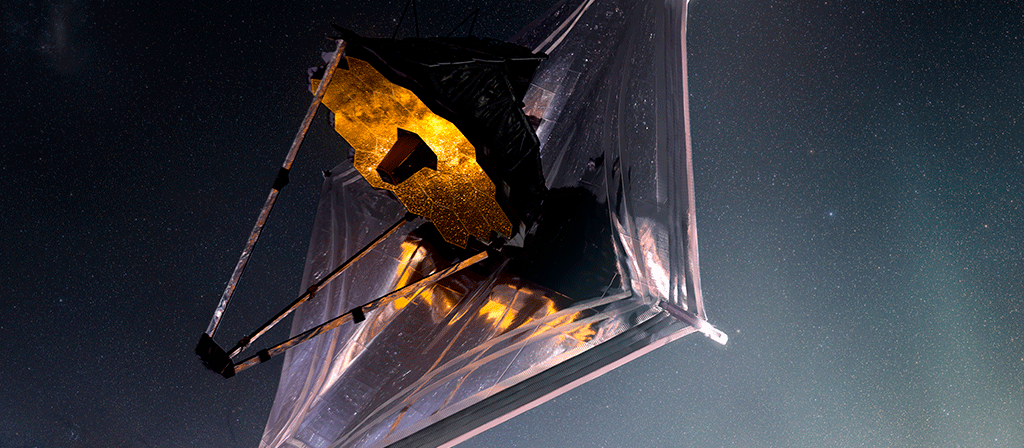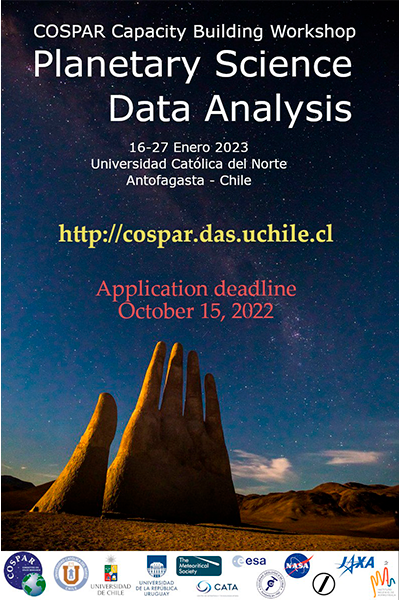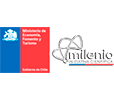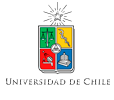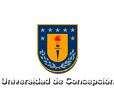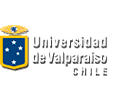[:en] The Millennium Institute of Astrophysics MAS has the honor to present prominent Astronomer and Pennsylvania State University Professor, Eric D. Feigelson, in Chile. He will visit Santiago from April 11th to 15th, 2016. Dr. Feigelson along with G. J. Babu are the authors of the 2012 critically acclaimed book “Modern Statistical Methods for Astronomy with R Applications,” Cambridge University Press. For several years, Feigelson has been a Scientific Editor of the Astrophysical Journal specializing in X-ray astronomy, star and planet formation, exoplanets, and statistical methodology. He is also on organizing councils of the AAS Working Group on Astroinformatics and Astrostatistics, and the International Astrostatistics Association.
The Millennium Institute of Astrophysics MAS has the honor to present prominent Astronomer and Pennsylvania State University Professor, Eric D. Feigelson, in Chile. He will visit Santiago from April 11th to 15th, 2016. Dr. Feigelson along with G. J. Babu are the authors of the 2012 critically acclaimed book “Modern Statistical Methods for Astronomy with R Applications,” Cambridge University Press. For several years, Feigelson has been a Scientific Editor of the Astrophysical Journal specializing in X-ray astronomy, star and planet formation, exoplanets, and statistical methodology. He is also on organizing councils of the AAS Working Group on Astroinformatics and Astrostatistics, and the International Astrostatistics Association.
Check: http://astro.psu.edu/people/e5f
During his visit, Dr. Feigelson will give 2 master lectures: one at the FCFM of Universidad de Chile (on April 11th) and the second one at the Casona Campus of Universidad Andrés Bello (on April 14th). In addition, he will give a tutorial course about Astrostatistics on R programming at PUC (on April 11-15). All these activities are free and they are sponsored by MAS.
In order to attend this tutorial you need to register in the following link:
goo.gl/tIZ9Uw
Lectures and Tutorial Sessions Program:
LECTURE 1
Common statistical problems in astronomical studies
Eric Feigelson, Penn State
Monday 11 April, 16-18 hrs
Auditorio Enrique D’Etigny, FCFM, Universidad de Chile
Av. Beauchef 850
Serving as the new Statistical Scientific Editor of the American Astronomical Society Journals (ApJ, AJ), I witness a variety of recurring situations where astronomers utilize inadequate statistical methodology. Some of these problems are reviewed here: overuse of binning, misuse of the Kolmogorov-Smirnov test, use of heuristic parametric models rather than local regression techniques, overuse of minimum-2 fitting for regression, inadequate post-fit regression analysis, overreliance on nonparametric clustering, and overuse of Bayesian inference with flat priors. Fortunately, astronomy seems to have escaped the widespread challenge to the statistical reliability of scientific results. The talk ends with resources for improving our community’s expertise in statistics.
LECTURE 2
Astrostatistics: The role of statistics in astronomical research
Eric Feigelson, Penn State
Thursday 14 April, 16-18 hrs
Building C1 third floor, Campus Casona, Calle Fernandez Concha 700, Las Condes
Universidad Andres Bello
For centuries, astronomy and statistics were closely allied fields of study, but they diverged in the 20th century. The result was a weakening of methodology in astronomy, both in broad understanding of modern statistical concepts and detailed knowledge of the vast range of statistical procedures. A nascent field of astrostatistics is now emerging to synergize these capabilities with astronomical research challenges including the advent of Big Data from survey telescopes. Conferences, Summer Schools, textbooks, and the highly capable R statistical software environment are now available to improve our community’s knowledge and usage of modern statistics.
TUTORIAL SESSIONS
Astrostatistics and R
Eric Feigelson (Penn State)
Auditorio: Auditorio Ninoslav Bralic
Campus San Joaquín
Pontificia Universidad Católica de Chile
Monday 11 to Friday 15: 9.00am-12.30pm
Abstract
The fields of astronomy and statistics diverged in the 20th century so that astronomers are often not well informed about the wealth of powerful modern methodologies developed by statisticians. Statistics is needed for: characterizing astronomical images, spectra and light curves; inferring properties of underlying populations from limited samples; linking astronomical observations to astrophysical theories; and many other aspects of data and science analysis. An additional difficulty has been the inaccessibility of software implementing modern statistical methods for most astronomers. Fortunately, a large, integrated and user-friendly public domain software system has emerged in recent years to implement modern methods. R with its >5000 add-on CRAN packages has >150,000 statistical functionalities, extensive graphics, links to other languages, and more. These astrostatistics tutorials are presented by astronomer Eric D. Feigelson, co-organizer of a long-standing Summer School and coauthor of the price-winning 2012 textbook `Modern Statistical Methods for Astronomy with R Applications’. Participants should bring laptops with R installed (http://www.r-project.org). R scripts and astronomical datasets will be provided.
Monday 11 April
9:00-10:30 Astrostatistics: Past, present and future
Break
11:00-12:30 Introduction to the R statistical computing environment
Tuesday 12 April
9:00-10:30 Density estimation (or data smoothing)
Break
11:00-12:30 Principles of statistical inference
Wednesday 13 April
9:00-10:30 Regression
Break
11:00-12:30 Data mining: Clustering and classification
Thursday 14 April
9:00-10:30 Spatial point processes
Break
11:00-12:30 Time series analysis
Friday 15 April
9:00-10:00 Censoring & truncation
10:00-11:00 Bayesian inference and computation
Break
11:30-12:30 Data visualization & high performance computing in R
[:es] The Millennium Institute of Astrophysics MAS has the honor to present prominent Astronomer and Pennsylvania State University Professor, Eric D. Feigelson, in Chile. He will visit Santiago from April 11th to 15th, 2016. Dr. Feigelson along with G. J. Babu are the authors of the 2012 critically acclaimed book “Modern Statistical Methods for Astronomy with R Applications,” Cambridge University Press. For several years, Feigelson has been a Scientific Editor of the Astrophysical Journal specializing in X-ray astronomy, star and planet formation, exoplanets, and statistical methodology. He is also on organizing councils of the AAS Working Group on Astroinformatics and Astrostatistics, and the International Astrostatistics Association.
The Millennium Institute of Astrophysics MAS has the honor to present prominent Astronomer and Pennsylvania State University Professor, Eric D. Feigelson, in Chile. He will visit Santiago from April 11th to 15th, 2016. Dr. Feigelson along with G. J. Babu are the authors of the 2012 critically acclaimed book “Modern Statistical Methods for Astronomy with R Applications,” Cambridge University Press. For several years, Feigelson has been a Scientific Editor of the Astrophysical Journal specializing in X-ray astronomy, star and planet formation, exoplanets, and statistical methodology. He is also on organizing councils of the AAS Working Group on Astroinformatics and Astrostatistics, and the International Astrostatistics Association.
Check: http://astro.psu.edu/people/e5f
During his visit, Dr. Feigelson will give 2 master lectures: one at the FCFM of Universidad de Chile (on April 11th) and the second one at the Casona Campus of Universidad Andrés Bello (on April 14th). In addition, he will give a tutorial course about Astrostatistics on R programming at PUC (on April 11-15). All these activities are free and they are sponsored by MAS.
In order to attend this tutorial you need to register in the following link:
goo.gl/tIZ9Uw
Lectures and Tutorial Sessions Program:
LECTURE 1
Common statistical problems in astronomical studies
Eric Feigelson, Penn State
Monday 11 April, 16-18 hrs
Auditorio Enrique D’Etigny, FCFM, Universidad de Chile
Av. Beauchef 850
Serving as the new Statistical Scientific Editor of the American Astronomical Society Journals (ApJ, AJ), I witness a variety of recurring situations where astronomers utilize inadequate statistical methodology. Some of these problems are reviewed here: overuse of binning, misuse of the Kolmogorov-Smirnov test, use of heuristic parametric models rather than local regression techniques, overuse of minimum-2 fitting for regression, inadequate post-fit regression analysis, overreliance on nonparametric clustering, and overuse of Bayesian inference with flat priors. Fortunately, astronomy seems to have escaped the widespread challenge to the statistical reliability of scientific results. The talk ends with resources for improving our community’s expertise in statistics.
LECTURE 2
Astrostatistics: The role of statistics in astronomical research
Eric Feigelson, Penn State
Thursday 14 April, 16-18 hrs
Building C1 third floor, Campus Casona, Calle Fernandez Concha 700, Las Condes
Universidad Andres Bello
For centuries, astronomy and statistics were closely allied fields of study, but they diverged in the 20th century. The result was a weakening of methodology in astronomy, both in broad understanding of modern statistical concepts and detailed knowledge of the vast range of statistical procedures. A nascent field of astrostatistics is now emerging to synergize these capabilities with astronomical research challenges including the advent of Big Data from survey telescopes. Conferences, Summer Schools, textbooks, and the highly capable R statistical software environment are now available to improve our community’s knowledge and usage of modern statistics.
TUTORIAL SESSIONS
Astrostatistics and R
Eric Feigelson (Penn State)
Auditorio: Auditorio Ninoslav Bralic
Campus San Joaquín
Pontificia Universidad Católica de Chile
Monday 11 to Friday 15: 9.00am-12.30pm
Abstract
The fields of astronomy and statistics diverged in the 20th century so that astronomers are often not well informed about the wealth of powerful modern methodologies developed by statisticians. Statistics is needed for: characterizing astronomical images, spectra and light curves; inferring properties of underlying populations from limited samples; linking astronomical observations to astrophysical theories; and many other aspects of data and science analysis. An additional difficulty has been the inaccessibility of software implementing modern statistical methods for most astronomers. Fortunately, a large, integrated and user-friendly public domain software system has emerged in recent years to implement modern methods. R with its >5000 add-on CRAN packages has >150,000 statistical functionalities, extensive graphics, links to other languages, and more. These astrostatistics tutorials are presented by astronomer Eric D. Feigelson, co-organizer of a long-standing Summer School and coauthor of the price-winning 2012 textbook `Modern Statistical Methods for Astronomy with R Applications’. Participants should bring laptops with R installed (http://www.r-project.org). R scripts and astronomical datasets will be provided.
Monday 11 April
9:00-10:30 Astrostatistics: Past, present and future
Break
11:00-12:30 Introduction to the R statistical computing environment
Tuesday 12 April
9:00-10:30 Density estimation (or data smoothing)
Break
11:00-12:30 Principles of statistical inference
Wednesday 13 April
9:00-10:30 Regression
Break
11:00-12:30 Data mining: Clustering and classification
Thursday 14 April
9:00-10:30 Spatial point processes
Break
11:00-12:30 Time series analysis
Friday 15 April
9:00-10:00 Censoring & truncation
10:00-11:00 Bayesian inference and computation
Break
11:30-12:30 Data visualization & high performance computing in R
[:]
